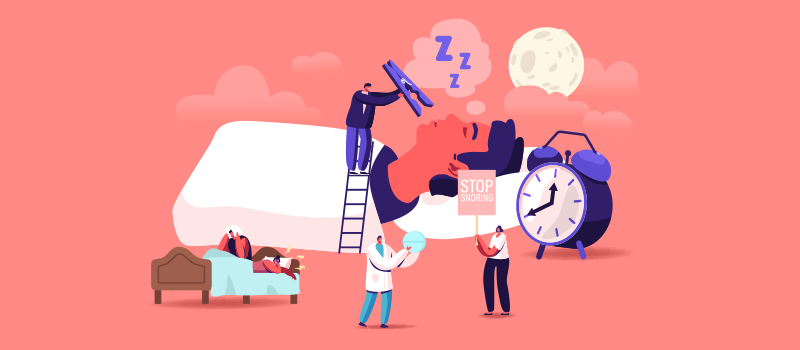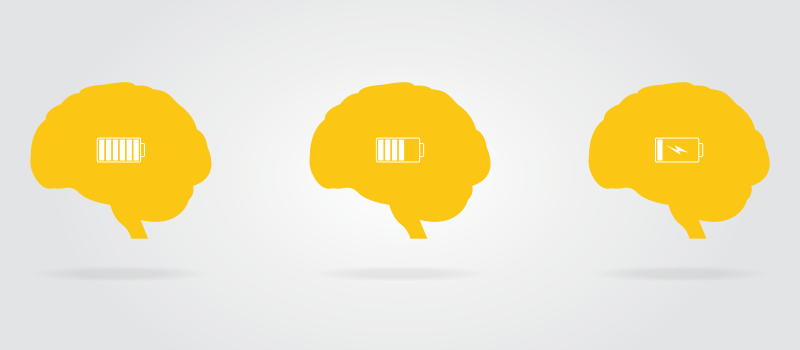What’s the Buzz
The Bee Healthy Blog
Can Sleep Apnea Be Controlled With Medication?

If you have sleep apnea or live with someone who has this condition, you probably know what a major problem the loud, disruptive snoring it causes can be. But sleep apnea is more than just a nuisance. It is a serious medical condition that can increase your risk of health conditions like cardiovascular disease. Sleep apnea must be evaluated by a sleep specialist at a sleep medicine clinic. If you have received a sleep apnea diagnosis after a sleep study or home sleep testing, then it is critical that you get proper treatment. Now, you might be wondering if there’s a pill you can take to treat obstructive sleep apnea, eliminate snoring, and get a good night’s rest.
Please continue reading to learn about sleep apnea treatment options. Also, find out what role medications play in treating sleep apnea.
What is sleep apnea?
Sleep apnea is a sleep disorder in which breathing starts and repeatedly stops during sleep. There are 3 types of sleep apnea:
- Obstructive sleep apnea is the most common type of sleep-disordered breathing. It occurs when the throat muscles temporarily relax and block the airway during sleep.
- Central sleep apnea occurs when the brain stops sending proper signals to the muscles that control breathing.
- Complex sleep apnea syndrome is a mix of obstructive sleep apnea and central sleep apnea.
Risk factors for adult obstructive sleep apnea include obesity, male gender, age, fluid retention, menopause, enlarged tonsils, and smoking.
What are the symptoms of sleep apnea?
According to the American Sleep Apnea Association, the signs and symptoms of obstructive sleep apnea include loud snoring; excessive daytime sleepiness; awakening abruptly at night gasping for breath; observed episodes of stopping breathing during sleep; dry mouth, sore throat, and headache in the mornings; difficulty concentrating during the day; irritability, depression, or other mood changes; high blood pressure; and decreased sex drive.
What is the most effective treatment for sleep apnea?
Weight Loss
There is a well-known link between excess body weight and sleep apnea. Obese and overweight people are more likely to have thick tissues in the back of their throat, which can relax and block the airway, thus preventing the flow of air into the lungs during sleep.
Therefore, losing weight is one of the most effective treatments for sleep apnea. Losing just 10% of body weight (20-pounds for someone who weighs 200 pounds) can have a significant effect on sleep apnea symptoms. However, given that weight loss is hard to achieve, other treatments for obstructive sleep apnea are available.
Continuous Positive Airway Pressure
Continuous positive airway pressure (CPAP) is the most common method of treating obstructive sleep apnea. A CPAP machine is a mask that fits over a person’s nose and mouth. It blows pressurized air into the airways to keep them open during sleep.
While a continuous positive airway pressure (CPAP) apparatus is effective, not everyone can tolerate it. It can take some getting used to because it is a cumbersome and clunky device. Indeed, many patients who try CPAP don’t stick with the treatment for this reason. Fortunately, with advances in technology, better-tolerated CPAP machines are on the market with various mask styles to meet the needs of different patients.
If you find initial treatment with a CPAP machine difficult to tolerate, other treatments like APAP (auto-titrating positive airway pressure) and BiPAP (bilevel positive airway pressure) may be worth trying.
Oral Appliance Therapy
Oral appliances or mouthpieces are a treatment option in mild cases of obstructive sleep apnea or in people with moderate to severe sleep apnea who cannot tolerate CPAP. These devices help keep the throat open by moving the lower jaw forward or holding the tongue in a different position. To get an oral appliance made, you need to see a dentist who specializes in devices for sleep disorders. You also need to return for close follow-ups to ensure that the device is working and not causing problems with your teeth.
Surgery
Sleep apnea surgery is usually reserved for people who have not responded to other therapies. There are different surgical procedures that can be performed, such as uvulopalatopharyngoplasty (surgical removal of extra tissue from the back of your throat). Surgical modifications such as maxillomandibular advancement (jaw surgery) to move your jaw forward are also an option. Surgery to remove enlarged tonsils and adenoids from the neck or to correct a deviated nasal septum in the nose may help some people with obstructive sleep apnea.
Upper Airway Stimulation Implant
This is one of the relatively new treatments that is FDA approved for obstructive sleep apnea. A small device is placed under the skin of the upper chest. It generates impulses that stimulate the hypoglossal nerve or phrenic nerve, which controls breathing patterns and movements of the tongue. The device can significantly improve obstructive sleep apnea symptoms.
Can medications be used for treating sleep apnea?
There are no medications that are specific for obstructive sleep apnea. However, some medications can provide relief from sleep apnea symptoms. Some of the medications doctors may use in people with obstructive sleep apnea include:
SSRIs: Selective serotonin reuptake inhibitors (SSRIs) are antidepressant medications. These drugs can make it harder for a person to fall into a stage of sleep called REM sleep, which is when breathing problems are most likely to occur. Some studies also show that SSRIs may also help keep the upper airway open.
Stimulants: Drugs like modafinil (Provigil) and armodafinil (Nuvigil) may be prescribed to people with sleep apnea to help reduce excessive daytime sleepiness.
Allergy and Asthma Medications: People with mild sleep apnea may find that keeping their allergies and asthma under control can help sleep apnea symptoms. Nasal decongestants, for example, may help to keep the nasal passages open and make breathing easier. You should obtain medical advice from a doctor before using these medicines long-term, however.
Weight Loss Drugs: Obesity is a risk factor for sleep apnea. Doctors may prescribe weight-loss drugs or anti-obesity medications to help you lose weight if lifestyle changes like diet and exercise have not worked.
Hormones: Age is a risk factor for sleep apnea. In women, falling estrogen levels at menopause may play a part. Hormone replacement therapy in women may help with sleep apnea, but more research is needed to confirm this.
Acetazolamide: This medication is used to regulate blood pressure at high altitudes and treat conditions like epilepsy and glaucoma. It can also help to reduce sleep disordered breathing in people with obstructive sleep apnea by increasing oxygen saturation. This drug can help continuous positive airway pressure devices work better. However, it can cause side effects and may not be right for people with kidney disease or liver disease.
What medications to avoid if you have sleep apnea?
Certain medications can make untreated sleep apnea worse. These include:
- Over the counter sleep aids or prescription sleeping pills
- Barbiturates (Luminal, Seconal, Amytal)
- Benzodiazepines (Valium, Xanax)
- Non-specific beta-blockers
- Opioids (Vicodin, OxyContin)
- Sildenafil (Viagra)
- Testosterone
- Medications that cause weight gain
Is sleep apnea a condition that can be cured?
While CPAP and oral appliances work well, they are not cures for sleep apnea. The only cure for obstructive sleep apnea is losing a significant amount of weight or undergoing surgery to remove extra tissue from the back of the throat.
References:
- https://www.mayoclinic.org/diseases-conditions/obstructive-sleep-apnea/symptoms-causes/syc-20352090
- https://www.sleepapnea.org/learn/sleep-apnea/#
- https://www.health.harvard.edu/blog/weight-loss-breathing-devices-still-best-for-treating-obstructive-sleep-apnea-201310026713
- https://watermark.silverchair.com/sleep-22-1-61.pdf
- https://jcsm.aasm.org/doi/10.5664/jcsm.6968#











SOCIAL